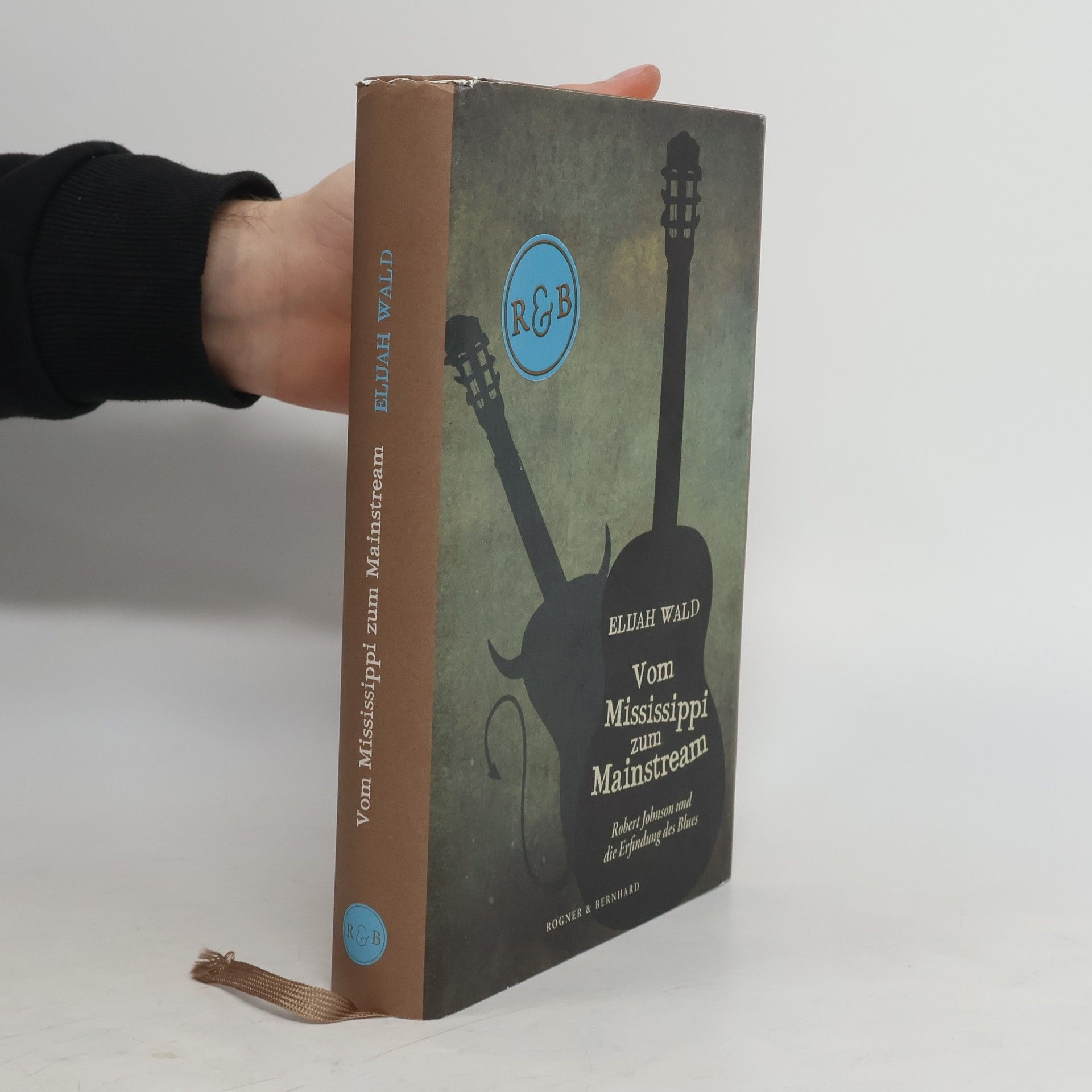Elijah Wald Bücher
Elijah Wald ist ein Musiker und Schriftsteller, dessen Werk sich hauptsächlich mit Musik beschäftigt, von Blues und Folk bis hin zu Weltmusik und mexikanischen Balladen. Sein neuestes Buch bietet eine revisionistische Geschichte der Popmusik, die herkömmliche kritische Ansätze in Frage stellt. Wald untersucht, was Mainstream-Popfans im Laufe der Zeit tatsächlich gehört und getanzt haben. Er ergänzt seine Lesungen oft durch Gitarrenspiel und Gesang und verbindet so seine literarische und musikalische Kunstfertigkeit.







How the Beatles Destroyed Rock 'n' Roll. An Alternative History of American Popular Music
- 336 Seiten
- 12 Lesestunden
How the Beatles Destroyed Rock 'n' Roll is an alternative history of American music that, instead of recycling the familiar cliches of jazz and rock, looks at what people were playing, hearing and dancing to over the course of the 20th century, using a wealth of original research, curious quotations, and an irreverent fascination with the oft-despised commercial mainstream.
The Blues: A Very Short Introduction
- 152 Seiten
- 6 Lesestunden
From the upbeat West Coast style of T-Bone Walker to the 'down home' Chicago sound of Muddy Waters, Elijah Wald brings the story up to the present, touching on the effects of blues on American poetry, and its connection to modern styles such as rap
Dylan Goes Electric!
- 368 Seiten
- 13 Lesestunden
One of the music world's pre-eminent critics takes a fresh and much-needed look at the day Dylan 'went electric' at the Newport Folk Festival, timed to coincide with the event's fiftieth anniversary. Elijah Wald explores the cultural, political and historical context of this seminal event that embodies the transformative decade that was the sixties
How the Beatles Destroyed Rock 'n' Roll is an alternative history of American music that, instead of recycling the familiar clichés of jazz and rock, looks at what people were playing, hearing and dancing to throughout the course of the 20th century, using a wealth of original research, curious quotations, and an irreverent fascination with the oft-despised commercial mainstream.
Bestselling music historian Elijah Wald follows Jelly Roll Morton on a journey through the hidden worlds and forbidden songs of early blues and jazz
The Mayor of MacDougal Street
- 246 Seiten
- 9 Lesestunden
Dave Van Ronk (1936-2002) was one of the founding figures of the 1960s folk revival, but he was far more than that. A pioneer of modern acoustic blues, a fine songwriter and arranger, a powerful singer, and one of the most influential guitarists of the '60s, he was also a marvelous storyteller, a peerless musical historian, and one of the most quotable figures on the Village scene. The Mayor of MacDougal Street is a first-hand account by a major player in the social and musical history of the '50s and '60s. It features encounters with young stars-to-be like Bob Dylan, Tom Paxton, Phil Ochs, and Joni Mitchell, as well as older luminaries like Reverend Gary Davis, Mississippi John Hurt, and Odetta. Colorful, hilarious, and engaging, The Mayor of MacDougal Street is a feast for anyone interested in the music, politics, and spirit of a revolutionary period in American culture
Dylan se dal na elektriku!
- 350 Seiten
- 13 Lesestunden
Newport, Seeger, Dylan a noc, která rozdělila 60. léta minulého století. Jeden z předních hudebních kritiků světa přináší svěží pohled na den, kdy se Dylan „dal na elektriku“ na Newportském Folkovém Festivalu. Večer 25. července 1965 vystoupil Bob Dylan na newportském folkovém festivalu s elektrickou kapelou a zakřičel: „Nebudu už dál na Maggiině farmě dřít!“ Publikum angažovaných folkových puristů a politických aktivistů bylo v šoku, na svého proroka bučelo, ale ozval se i občasný jásot. Byl to výstřel slyšitelný po celém světě - Dylanova deklarace hudební nezávislosti, konec folkového obrození a zrození rocku jako hlasu celé generace - a jeden z nejdůležitějších okamžiků hudby dvacátého století. V knize Dylan se dal na elektriku! Elijah Wald zkoumá kulturní, politický a historický kontext této klíčové události, která ztělesňuje transformační desetiletí, tedy šedesátá léta. Ponořil se hluboko do folkového obrození, nástupu rocku a napětí mezi tradiční a novou hudbou a přišel s novým pohledem na Dylanův umělecký vývoj, jeho zvláštní afinitu k blues, jeho komplexní vztah k folkovému hnutí, na jeho někdejšího mentora Pete Seegera a na způsob, jimž navždy změnil populární hudbu. V současné době podle knihy vzniká film, na němž se podílí i Dylanův dlouholetý manažer Jeff Rosen a v němž Boba Dylana hraje vycházející hvězda Timothée Chalamet.

